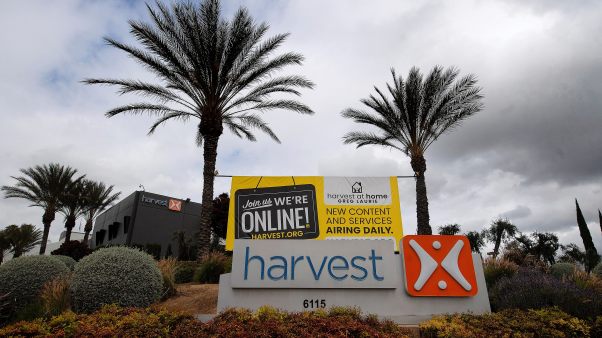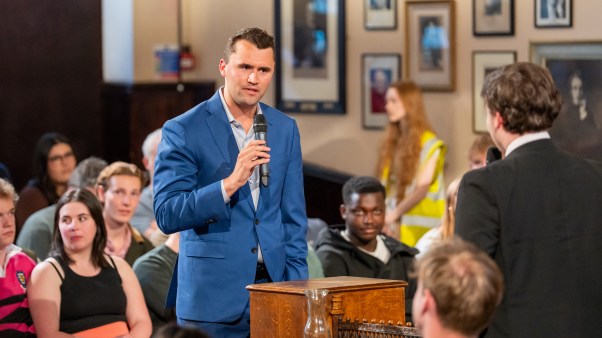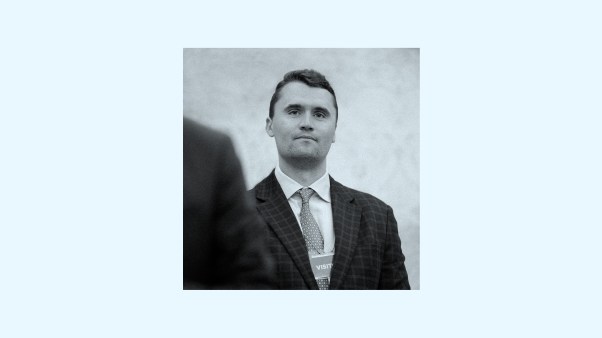Some Minnesotans don’t recognize Gov. Tim Walz in the vaunted coverage he’s received since becoming Democratic presidential hopeful Kamala Harris’s pick for vice president this week.
Walz, 60, is a self-described “Minnesota Lutheran,” belonging to the mainline Evangelical Lutheran Church in America (ELCA), according to Religion News Service. Profiles of the former teacher turned politician are punctuated with descriptors like folksy and avuncular.
“He’s touting himself as the everyday Midwestern dad,” but his administration has been far more polarizing in the state, according to Julie Johnson, a fourth-generation Minnesotan and a member of an Evangelical Free congregation in a Minneapolis suburb. She said that, under his leadership, Walz has swung the state to the left on basically every issue, alienating religious conservatives along the way.
Walz won the governor’s mansion in 2018. But rather than sticking to the moderate “One Minnesota” approach that he promised on the campaign trail and that characterized his time in the House of Representatives, Walz’s priority has been “more of a war on our culture,” Johnson said.
Johnson, an advocate for a Christian nonprofit, pointed to a host of progressive policies his administration enacted: signing a law that makes abortion a right in the state at any point in a pregnancy, legalizing marijuana, giving driver’s licenses to undocumented immigrants, and making the state a “refuge” for those seeking gender transitions.
His COVID-19 era policies also earned chagrin from conservatives as he restricted church gatherings and set up a hotline for people to report those who breached social distancing policies.
The Becket Fund for Religious Liberty, on behalf of the Minnesota Catholic Conference and the Lutheran Church–Missouri Synod (LCMS, the more conservative Lutheran denomination), negotiated with the Walz administration after it initially prevented houses of worship from having services of more than ten people while allowing retailers to resume operating at 50 percent capacity. There was a lawsuit before the state allowed church services to be less restricted.
Other Christians in Minnesota said that while Walz could shore up Democratic enthusiasm for left-leaning voters, he wasn’t the kind of politician who could appeal to conservatives.
Walz’s parents were Catholic, according to the Star Tribune, and he has periodically posted about attending worship services, sometimes at Pilgrim Lutheran Church, an ELCA congregation in St. Paul. In Minnesota, 20 percent of the population identifies as mainline Lutheran, compared to just 2.1 percent of Americans overall, according to Pew Research Center polling.
While the denomination is progressive, the politics in the pews of ELCA churches present a more mixed picture. In 2020, a slight majority of ELCA Lutherans voted for Trump, noted researcher Ryan Burge.
Among the ELCA, around 43 percent identified as or leaned Republican, and 47 percent identified as or leaned Democrat, Pew found. Around 24 percent identified as liberal, 41 percent as moderate, and 32 percent as conservative.
The LCMS, meanwhile, identified as or leaned Republican by nearly 60 percent, with 27 percent identifying as or leaning Democrat. A much higher percentage (52%) identified as conservative, compared to only 33 percent as moderate and 10 percent as liberal.
If elected, Walz would be the second vice president to both hail from Minnesota and identify with Lutheranism: Lyndon B. Johnson’s vice president, Hubert Humphrey, was raised Lutheran.
“His name does not come to mind when I think of a faith leader,” Julie Johnson said.
Lutherans who hail from the evangelical LCMS denomination don’t see Walz’s candidacy as a boon for more representation of their faith.
“For the average Missouri Synod member, both pastor and lay member, [Walz] absolutely will not be seen as one of us,” Hans Fiene, a Lutheran pastor in Missouri and creator of Lutheran Satire, a multimedia project to teach about the Lutheran faith, told CT. “So there won’t be any kind of situation like with Biden being a Catholic, where Catholics go, Well, he doesn’t really represent us, but he’s still a Catholic.”
“He’s really not representing our worldview,” Greg Seltz, director of the Lutheran Center for Religious Liberty in Washington, DC, an advocacy arm of the LCMS, told CT. “I’m not judging him by the official teachings of the ELCA, you know, I’m judging him by his policies, which is the way I think we should judge a candidate.”
Seltz mentioned Walz’s positions on abortion as disqualifying. He said that while Walz wasn’t a familiar figure to him initially, since the announcement, he’s heard numerous concerns from pro-life Lutheran groups and other conservative Christians.
“The whole way he’s being presented to us is that he’s just a moderate country boy from Minnesota,” Seltz said. “He’s a very, very progressive, very, very left-wing governor.”
It’s likely, though, that faith—and denominational schisms—will not be a focus for Walz as he goes about introducing himself to the public.
At a talk earlier this year, Walz hinted at his understated approach to religion: “Because we’re good Minnesota Lutherans, we have a rule: If you do something good and talk about it, it no longer counts.”
“So what you have to do is to get someone else to talk about you,” he added.












